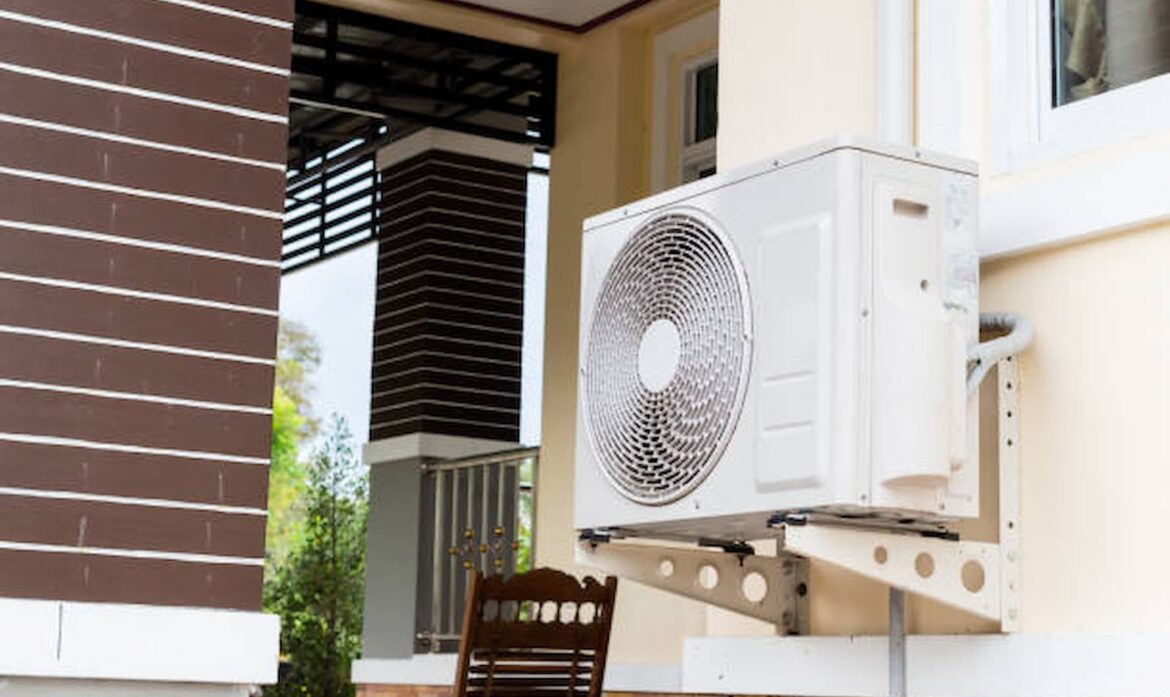Introduction to Heat Pump Systems
In recent years, the quest for sustainable heating solutions has led an increasing number of homeowners to adopt heat pump systems. These state-of-the-art devices are revolutionizing home climate control by offering an energy-efficient and environmentally friendly alternative to conventional heating methods. A pivotal advancement in this area is the development of cold climate heat pump technology, which excels in maintaining efficiency even during the harshest winters, thus providing versatility across various climates.
Amid global concerns regarding escalating energy consumption and environmental degradation, many individuals consider energy efficiency a fundamental priority for their home systems. Heat pumps’ capacity to adjust to the changing needs of modern living areas has made them a promising answer to these issues.
Homeowners looking for ecologically responsible and energy-efficient heating options are increasingly choosing heat pump systems, particularly with the advancement of cold climate technology that guarantees function even during severe winters. These systems help reduce energy consumption and carbon emissions by using renewable energy sources, offering a cleaner alternative to traditional fossil-fuel heating. As technology advances and becomes more affordable, heat pumps are expected to be an accessible and sustainable option for more households looking to reduce their environmental impact.
How Heat Pumps Work
The operation of heat pumps is based on the principle of heat transfer rather than heat generation. This is achieved through various types of systems, such as air-source, ground-source, and water-source heat pumps, each providing distinct benefits suited to different settings. Air-source pumps capitalize on ambient air, requiring only moderate temperature variances for optimal performance. Ground-source systems, commonly known as geothermal heat pumps, utilize the earth’s stable temperatures for consistent operational efficiency throughout the year. Meanwhile, water-source heat pumps rely on nearby water bodies to efficiently facilitate heat exchange.
This distinctive approach to heating, where pumps move existing heat rather than produce it directly, results in considerable energy savings. By consuming less electricity compared to traditional systems, heat pumps offer significant potential for reducing both operational costs and ecological footprints.
Benefits of Heat Pump Systems
The primary advantage of heat pumps lies in their exceptional energy efficiency. By leveraging ambient thermal energy, these systems markedly lower energy usage, contributing to substantial reductions in household utility expenses and carbon emissions. Moreover, numerous policy incentives and rebates are available to homeowners considering heat pump installations, making them an economically attractive choice.
Another key benefit of heat pumps is their dual functionality, as they provide both heating and cooling solutions. This versatility negates the necessity for separate heating and air conditioning systems, enhancing home comfort year-round. Additionally, heat pumps are known for their quiet operation and long-lasting durability, which contribute positively to the home environment.
Considerations When Choosing a Heat Pump
Choosing the ideal heat pump involves several factors. Climate is critical, as specific models are engineered to perform optimally in certain temperature ranges. For example, in colder areas, specialized cold climate heat pumps ensure efficiency despite plunging temperatures. Home size and insulation levels are also crucial in determining system selection, necessitating a model selection tailored to individual household specifications for maximum efficacy.
Professional installation is indispensable for ensuring peak performance and operational safety. An expertly installed heat pump promises better efficiency and longevity. Routine maintenance, including regular filter cleaning and system assessments, is equally important in maintaining the system’s efficiency over its lifespan.
Environmental Impact of Heat Pumps
Heat pumps substantially reduce dependence on fossil fuels, thereby decreasing greenhouse gas emissions. As they chiefly use electricity—which can be sourced from renewable energies—they offer an environmentally beneficial alternative to traditional combustion heating systems. This alignment with sustainable initiatives makes heat pumps pivotal in meeting global climate targets and enhancing air quality.
The widespread adoption of heat pumps could significantly mitigate environmental pollution, offering health and ecological benefits worldwide. As an integral component of international sustainability strategies, these systems embody a progressive shift towards cleaner, greener technologies.
Cost Efficiency and Savings
Although heat pumps might entail a higher upfront cost compared to conventional heating systems, the long-term financial benefits are substantial. Over time, the reduction in utility bills due to decreased energy usage often compensates for initial costs within a relatively short period. Their durability and minimal maintenance requirements further amplify their cost-effectiveness, presenting an attractive proposition for economically-conscious homeowners.
When compared with traditional heating systems, heat pumps’ cost savings and value offer reinforce their status as smart investments, delivering both economic and environmental returns over time.
Real-World Examples of Heat Pumps in Action
Heat pumps’ adaptability is evident in diverse climates and homes, from bustling city apartments to sprawling country houses. For instance, those residing in colder regions report considerable energy savings and increased comfort after transitioning to cold climate heat pumps. Conversely, in more temperate zones, heat pumps provide efficient cooling solutions during sweltering summer months, maintaining desirable indoor conditions cost-effectively.
Across various geographic and climatic contexts, these systems consistently demonstrate their ability to deliver effective heating and cooling, contributing to improved living standards and environmental performance.
Conclusion: The Future of Heat Pump Technology
As technology advances, heat pump systems continue to evolve toward greater efficiency and adaptability. Emerging trends include integrating smart technologies that enable personalized control and monitoring, further enhancing their user-friendliness and effectiveness. As a cornerstone of future urban planning and sustainable architecture, heat pumps are primed to play a significant role in eco-friendly construction and human habitation.
By opting for heat pumps, homeowners can actively participate in creating a sustainable future while benefiting from innovative heating and cooling solutions. Such choices advocate for a greener planet and underscore the importance of adopting technologies that preserve environmental integrity and enhance residential comfort.

